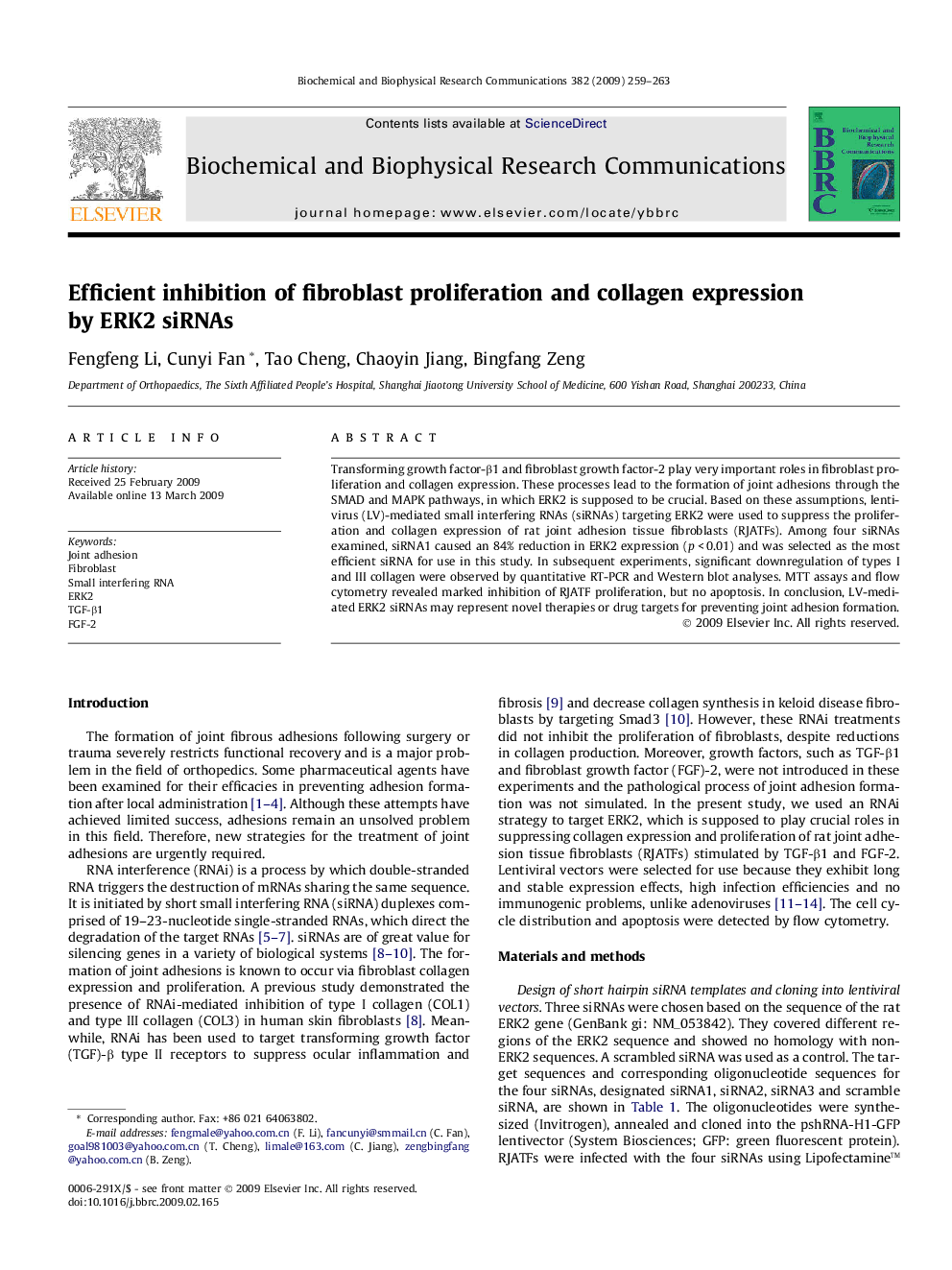| Article ID | Journal | Published Year | Pages | File Type |
|---|---|---|---|---|
| 10766158 | Biochemical and Biophysical Research Communications | 2009 | 5 Pages |
Abstract
Transforming growth factor-β1 and fibroblast growth factor-2 play very important roles in fibroblast proliferation and collagen expression. These processes lead to the formation of joint adhesions through the SMAD and MAPK pathways, in which ERK2 is supposed to be crucial. Based on these assumptions, lentivirus (LV)-mediated small interfering RNAs (siRNAs) targeting ERK2 were used to suppress the proliferation and collagen expression of rat joint adhesion tissue fibroblasts (RJATFs). Among four siRNAs examined, siRNA1 caused an 84% reduction in ERK2 expression (p < 0.01) and was selected as the most efficient siRNA for use in this study. In subsequent experiments, significant downregulation of types I and III collagen were observed by quantitative RT-PCR and Western blot analyses. MTT assays and flow cytometry revealed marked inhibition of RJATF proliferation, but no apoptosis. In conclusion, LV-mediated ERK2 siRNAs may represent novel therapies or drug targets for preventing joint adhesion formation.
Related Topics
Life Sciences
Biochemistry, Genetics and Molecular Biology
Biochemistry
Authors
Fengfeng Li, Cunyi Fan, Tao Cheng, Chaoyin Jiang, Bingfang Zeng,
